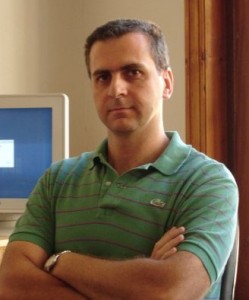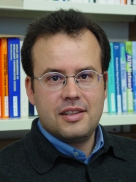Abstract:
ICT infrastructures and enterprise systems are today in a process of deep change, motivated by the transformation that are taking place in two key dimensions. One is the technology dimension, with the advent of Cloud Computing, Service Oriented Architectures (SOA) and SaaS (Software as a Service), Internet of Things and Smart Objects, Semantic Web and Linked Data, and finally the advent of Social Media in the enterprise world, just to name a few among the most relevant ones. Another is the socio-economic dimension, where the slowdown of western economies requires a change in the development models and business paradigms; in particular, enterprises are under pressure to achieve, at the same time, more efficiency and continuous innovation. Therefore, enterprise systems need to refocus, progressively shifting from the management of today resources and value production activities to the invention of future opportunities and new forms of value production. This is, in essence, the current scenario that next generation enterprise systems need to cope with. And the challenges require a new approach to the knowledge assets that is often referred to as the ‘oil of the third millennium’. Therefore, enterprise systems need to deeply change, in the way they are conceived and engineered, achieving a tight integration with semantic technologies and social media.
Bio:
Michele Missikoff, Doctor in Physics (University of Rome „La Sapienza“), worked until 1980 in industrial research labs of two Italian companies, leader in electronic equipment and software development, respectively. Then he started his research carrier, becoming Director of Research in 2001, at the National Research Council, Institute of Analysis of Systems and Informatics, where he coordinated the Database group until 1985, then the Knowledge Engineering group and, in 1999, he founded the LEKS, Lab for Enterprise Knowledge and Systems, that he currently leads as CNR Research Fellow.
He has been the proposer, coordinator and/or active participant in more than 30 national, European and international projects. Has being particular active in various groups, committees, and task forces, promoted by the European Commission, DG Information Society and Media. Currently, he is the coordinator of the FInES (Future Internet Enterprise Systems) Research Roadmap Task Force, launched by the EC FInES Cluster (Unit D4).
He has promoted, organised, and chaired various international conferences and workshops, among which CAiSE, CoopIS, ODBASE, EDBT (co-founder), VLDB (Industrial Co-chair). He has been editor of VLDB Journal, Journal of Applied Intelligence. He has a long teaching experience at University of Roma „La Sapienza“ and LUISS, with courses on Artificial Intelligence, Databases, Information Systems, Knowledge Management. He published more than 150 technical and scientific papers, many on international journals and conference proceedings, with the main focus on application of semantic technologies to e-Business and e-Government. His main research interests are: enterprise ontologies, methods for knowledge representation, ontology engineering, similarity reasoning, business process ontologies, methods and tools for business innovation; and applications in the area of e-tourism, e-government, e-business, and mobile social media.




 Unycom GmbH ist ein spezialisierter Anbieter von unternehmensweiten Software-Lösungen in den Bereichen Intellectual Property Management für Unternehmen und Patentanwaltskanzleien. Der Hauptsitz der Unycom GmbH befindet sich mit rund 70 Angestellten in Graz, Österreich. Darüber hinaus haben wir Niederlassungen in München, Deutschland und San Francisco, Kalifornien.
Unycom GmbH ist ein spezialisierter Anbieter von unternehmensweiten Software-Lösungen in den Bereichen Intellectual Property Management für Unternehmen und Patentanwaltskanzleien. Der Hauptsitz der Unycom GmbH befindet sich mit rund 70 Angestellten in Graz, Österreich. Darüber hinaus haben wir Niederlassungen in München, Deutschland und San Francisco, Kalifornien.